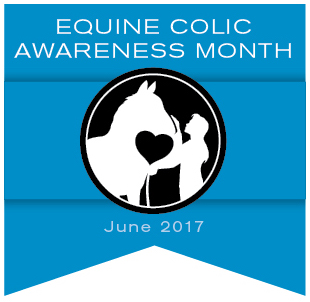One of the best resources we have for learning how horses should be fed is observing horses in the wild. They are healthy, hardy, and rarely deal with digestive issues like colic. Here’s what sets their lifestyle apart:
- Eating Primarily forage diets
- Grazing up to 18 hours a day
- Requiring little energy except in short bursts
Caring For Your Horse to Avoid Colic
Turning your horse out to pasture and not asking much from him isn’t very practical – and for many of us it defeats the purpose of having horses. We are restricted in the changes we can make by our boarding barns. We may not have the land available for adequate turnout. The greater energy needed for regular riding and competition requires more than a forage-only diet.
In these situations, there are still many best practices and small tweaks you can implement to reduce horses’ risk for induced colic that begins in the equine hindgut.
Tip 1: Maximize the Percentage of Forage
Your horse needs to eat at least 1.5% of his body weight in forage (good quality grass and hay) every day to maintain his weight and health. The majority of your horse’s diet should be forage, not concentrates like sweet feed and processed feeds.
Tip 2: Increase Turnout Time
Give your horse more pasture time with good quality grass. Both grazing different types of forages available in the grass and the constant movement encourage digestive health.
Also, your horse should have access to forage around the clock. If he spends time stalled or turned out without good quality pasture grass, he needs to have access to free choice hay.
Tip 3: Reduce Concentrates
Reduce the amount of grain or processed feed in the diet as much as possible. You can replace the calories with soaked beet pulp. It has the same caloric value as oats but is fermented in the hindgut – which is much better for your horse.
Tip 4: Feed Smaller Meals More Frequently
Your horse may require concentrates in his diet to meet nutritional and energy needs. Feed in several small meals of no more than 5 pounds each throughout the day. Smaller meals make it easier for simple carbohydrates to be digested before they reach the hindgut.
Tip 5: Slow Intake
Getting your horse to eat grain meals more slowly goes a long way towards digestive health. Besides feeding smaller more frequent meals, there are some handy techniques to get your horse to chew more slowly. The best method is to mix chaff (chopped hay) with his grain.
Tip 6: Provide Plenty of Fresh, Clean Water
Dehydration is a big issue when it comes to impaction colic. Make sure your horse always has clean, fresh water to drink. Be aware of drastic weather changes, particularly when conditions suddenly drop below freezing. Some horses will only drink warm water, so consider using a heated bucket or heater in your trough during winter (bonus: you won’t have to break through ice every day either). Provide a salt block in your horse’s stall and turnout area to encourage your horse to drink plenty of water.
Tip 7: Be Consistent
Feed the same types and amounts of concentrates and forages (if you can’t feed free choice) and at the same time every day. Changing feeds quickly or varying routine can have a negative effect on the beneficial bacteria that work in the hindgut. If you change feeds or forages or start introducing pasture time on grass in the spring, do it slowly over a period of several weeks.
Tip 8: De-worming
Keeping your horse free of parasites is critical to overall digestive health. Consult your veterinarian and put together an appropriate de-worming rotation for your horse – and stick to it.
These tips are the tenets of the Crusade Against Equine Colic campaign. Knowing and implementing these basic principles can help your horse avoid induced cases of colic that occur as a result of modern management practices.
Join the Crusade and show your commitment to a implementing a healthy lifestyle for your horse – and sharing what you’ve learned with others.






